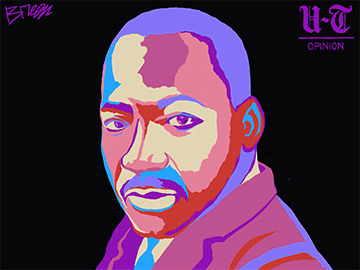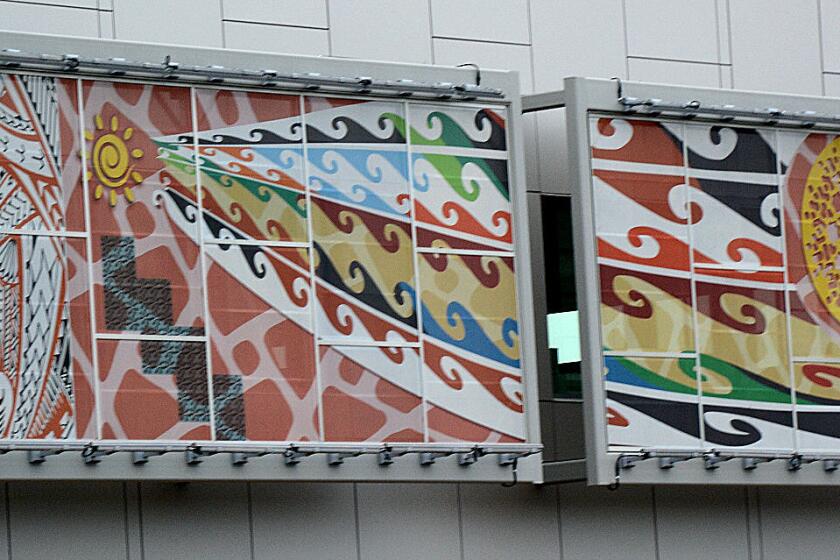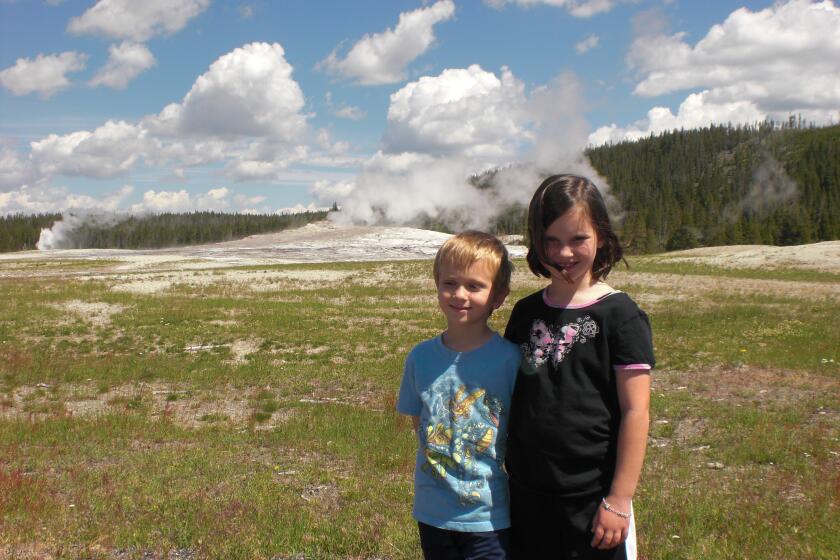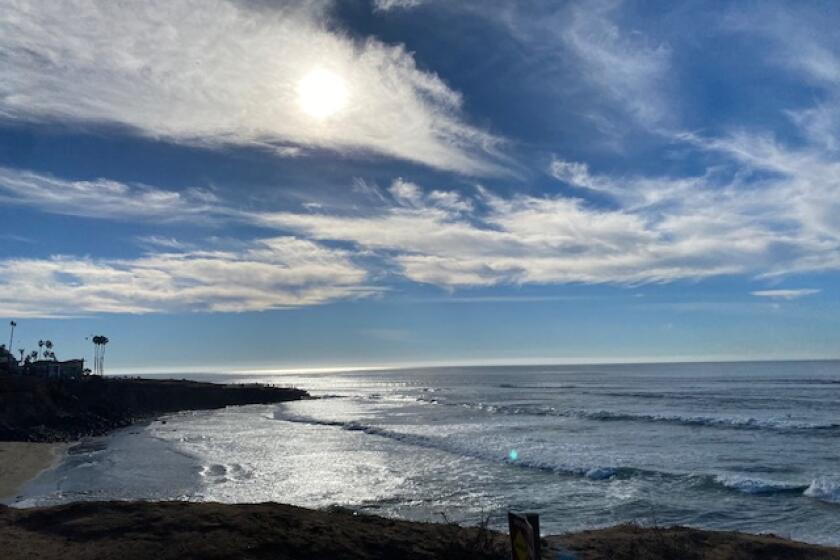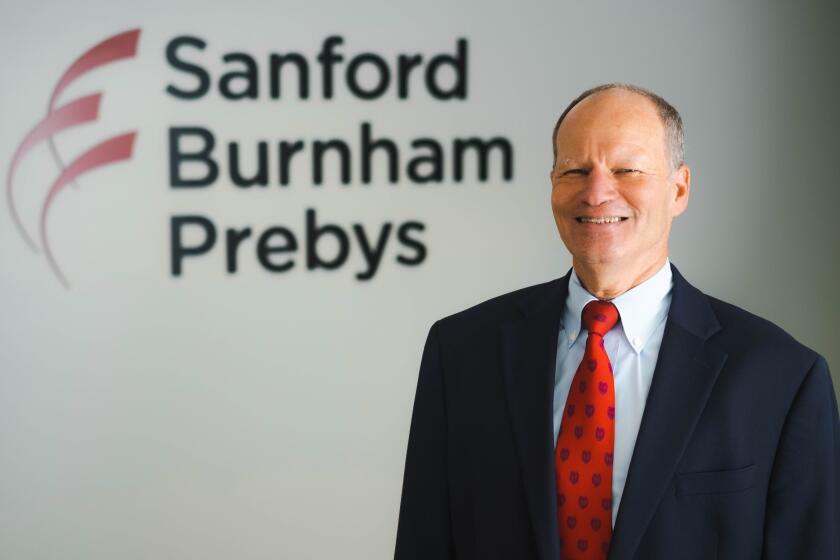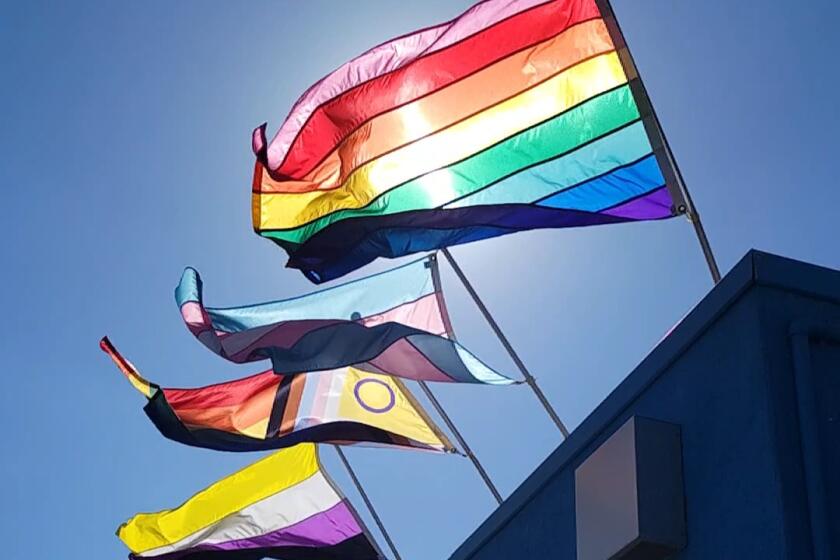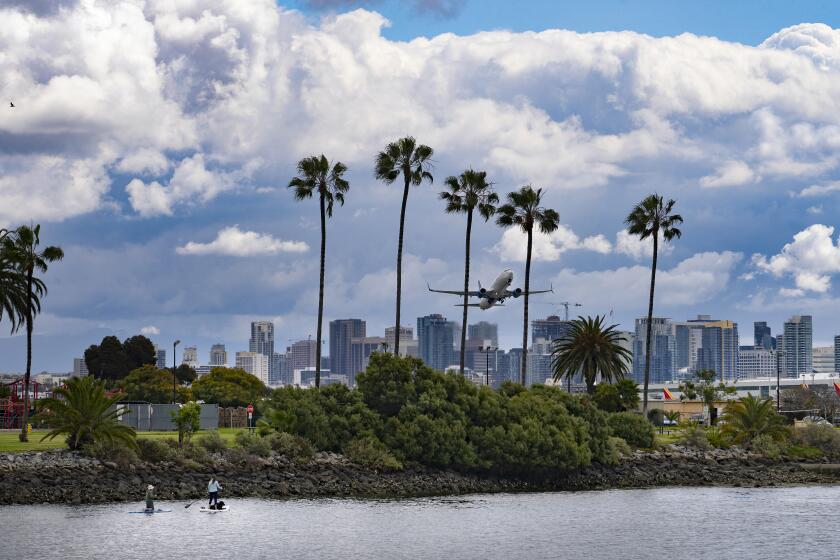Opinion: King’s words have a powerful impact on Arab Americans today
All of us are infantilized when we complain. We are told to be patient, to wait, because we are not grown up yet.
Bittar is an artist, educator, writer and California organizer for the American Arab Anti-Discrimination Committee. She lives in North Park.
“The Western arrogance of feeling that it has everything to teach others and nothing to learn from them is not just.” Martin Luther King Jr.’s words have a powerful impact on Arab Americans because they imply global mirroring of racism and how war is justified. MLK’s words to those abroad also acknowledge how Black Americans are disproportionately enlisted to kill people of color overseas.
“We must accept finite disappointment,” Martin Luther King Jr. said, “but never lose infinite hope.”
We provide this platform for community commentary free of charge. Thank you to all the Union-Tribune subscribers whose support makes our journalism possible. If you are not a subscriber, please consider becoming one today.
MLK visited Beirut a decade after 750,000 Palestinians were brazenly forced out of their homes in 1948. He canceled a trip to Jerusalem in 1967 when an additional 300,000 Palestinians ran from death, joining their brethren into stateless wandering with no possibilities of return, visitation or compensation to this day. My family in Beirut witnessed it and provided clothes and blankets when United Nations shelters were flooded by storms.
War is humanity’s abject failure. Its morbid core is defeatism and fear. Nurturing peace is rarely as hard as war ends up being. Since World War II, America’s theaters of war are where people of color live, work and breathe — overall deaths from Korea, Vietnam, Iraq and Afghanistan conservatively aggregate over 1 million.
Arab Americans in the United States are acutely tuned in to the world at large while American bombs have steadily fallen on Arab and Muslim lands. Oddly, Arabs’ love for American ideals is cherished. We understand the strangeness of how the world desires to come to America even when American bombs are falling on them. We must no longer be silent to share our complexity, a missing ingredient in American comprehension.
Arab Americans suffer from hidden racism, having been blacklisted, put on secret trials, deemed not newsworthy, erased from the arts, etc. Arab Americans suffer from bigoted police, too, but it’s not as horrific as in-broad-daylight violence Black Americans suffer. Indigenous and Latin brethren are not far behind.
All of us are infantilized when we complain. We are told to be patient, to wait, because we are not grown up yet.
Following George Floyd’s death, Arab Americans joined Black Americans to monitor the police, and expose and reform the systemic assault on Black America. Arab Americans were wary of emphasizing foreign equivalents, but were jolted by the familiar knee to neck hold that murdered Floyd, because it’s regularly practiced on Palestinians by Israeli Defense Forces.
Training of U.S. police by Israel is unethical because it further militarizes police officers to see segments of the American population as occupied entities. The Black community embraced our role to reveal international networks of violence against people of color. Our alliance resulted in victories across American cities.
Let’s risk discomfort and intimately touch the contours of racism because our cyclical repressive systems at home and abroad are founded on race. Martin Luther King Jr. asks us to look in the mirror soberly and root out our biases, fears and bigotry.
Get Weekend Opinion on Sundays and Reader Opinion on Mondays
Editorials, commentary and more delivered Sunday morning, and Reader Reaction on Mondays.
You may occasionally receive promotional content from the San Diego Union-Tribune.
